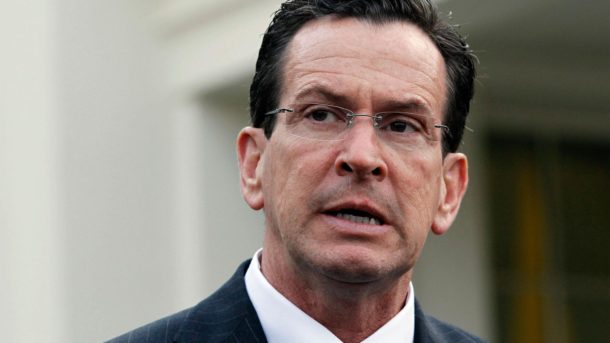Is This Any Way to Run a City’s Schools?
Leaked CTU Proposals Won’t Do Anything to Improve Schools’ Poor Performance

Pro-Union Monopoly Policies Plunging Nutmeg State Into Deep Debt
Late last year, Connecticut Gov. Dannel Malloy (D) signed a state budget that has papered over a vast $5.1 billion deficit, but utterly failed to correct fiscal imbalances that are primarily the result of labor policies authorizing and promoting monopolistic unionism in government.
In the wake of a series of tax increases that have foisted on Connecticut residents one of the heaviest state-and-local tax burdens in America, state revenues are projected to drop by $1.5 billion, or 3.6%, in 2019 and 2020, as businesses and employees flee the state.
Meanwhile, total state payroll expenditures for health care and pensions covering Connecticut’s 69%-unionized government workforce are poised to soar by nearly 15%, to $10 billion.
‘From a Fiscal Standpoint,’ Hartford Is Fighting ‘With Its Hands Behind Its Back’
Though Connecticut itself is tottering on the edge of insolvency, state lawmakers recently agreed to establish a special fund that their capital city, Hartford, can tap into to stave off a bankruptcy that otherwise appeared imminent.
With taxes already exorbitantly high (for example, the annual property assessment on a $300,000 home in Hartford is nearly $22,300) and expenditures on core services already slashed to enable the city to meet its soaring payroll costs, Democrat Mayor Luke Bronin and the city council remain in a tight spot.
State law effectively prevents them from doing anything to stem the growth of payroll costs without the permission of union bosses or arbitrators who have a flagrant bias in favor of Big Labor.
“Right now, from a fiscal standpoint, you have a capital city fighting with its hands behind its back,” lamented Mr. Bronin last year.
Other Big Labor-Ruled States ‘Have Similarly Bloated Ranks of Public Employees’
In a sober analysis of Connecticut’s plight penned for National Review Online, Connecticut business consultant and political commentator Red Jahncke pointed out that the state budget itself projects a “deep $4.5 billion deficit” in the 2019-20 biennium and “a deeper abyss thereafter.”
While the Nutmeg State’s “outlook is dire,” Mr. Jahncke suggested residents can take cold comfort in the fact that a number of other states (all of which authorize and promote union monopoly bargaining and compulsory unionism in the government sector) are also in big trouble:
“The state looks like the canary in the mine.
“Other high-tax, big-government blue states have similarly bloated ranks of public employees earning unaffordable benefits that have generated severely underfunded pension and health obligations.
“Illinois, New Jersey, and California come to mind. They should take heed.”
Politicians in Right to Work States Have a Lower Incentive to Be Profligate
National Right to Work Committee Vice President Mary King noted that, on average, both state-local tax burdens and unfunded public pension liabilities per capita are far lower in states where unionism is voluntary than in states where it is compulsory.
“Obviously,” she acknowledged, “Right to Work laws in themselves do not suffice to prevent politicians from making pension promises to government union officials that taxpayers can’t reasonably be expected to fulfill.
“But they do evidently help keep politicians’ irresponsibility from getting totally out of hand.
“The reason why isn’t hard to see. In jurisdictions where forced union dues and fees are permitted and union monopoly bargaining in the public sector is authorized and promoted, union bosses negotiate with government employers over civil servants’ pay, benefits, and working conditions.
“At the same time, government union chiefs funnel a large portion of the forced dues and fees they collect into efforts to influence the outcomes of state and local elections.
“And the outcomes of those elections often determine who represents the public at the bargaining table.
“Because of union bosses’ extraordinary special privileges, many politicians in states like Connecticut, Illinois, California, and New Jersey would rather cut core services and raise taxes again and again instead of standing up to Big Labor.
“To reassert control over their public-pension obligations and protect taxpayers, states like Connecticut need, as a first step, to eliminate compulsory union dues and fees.
“Right to Work laws and repeal of government-sector monopoly-bargaining statutes are indispensable parts of public budget reform.”

Leaked CTU Proposals Won’t Do Anything to Improve Schools’ Poor Performance

Wherever Big Labor wields the power to collect forced union dues, union bosses funnel a large share of the confiscated money into efforts to elect and reelect business-bashing politicians. Employment growth tends to lag as a consequence.

Members Insist They Keep Pro-Right to Work Campaign Promises